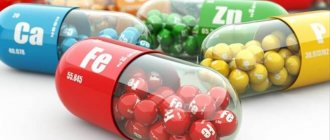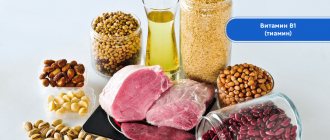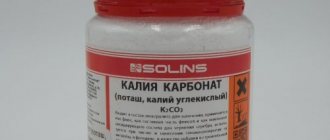Hair loss
It is normal to lose about 100 hairs per day. But if you notice large strands or clumps of hair on your pillow or in the shower, you may be low on iron. You are not alone. This is one of the most common nutritional deficiencies in the world. To check iron, the doctor may prescribe LVSS, Transferrin saturation with iron, Complete blood count (CBC/Diff) with leukocyte count without ESR, Reticulocyte count, Ferritin.
If you're a new mom and your hair is falling out like a waterfall, don't panic right away. During pregnancy, hair usually grows faster and thicker. After childbirth, estrogen and hair fall along with it. In a year everything should be back to normal. Iron deficiency after childbirth is quite common.
Types of vitamin deficiencies
Vitamin deficiency in the body can take various forms.
Subnormal level
. This is one of the easiest varieties. Most often, deficiency is associated with nutritional disorders and circumstances that lead to a temporary increase in the need for vitamins (for example, pregnancy or recovery from an illness). Subnormal supply of vitamins can manifest itself in different ways, but, as a rule, symptoms are limited to minor malaise, increased susceptibility to colds, and decreased tone. But it is important to understand that signs of vitamin deficiency depend on what specific substance the body lacks.
Hypovitaminosis
.
This is a more pronounced vitamin deficiency, but it cannot yet be called critical. The body still retains some reserves of fat-soluble vitamins and receives water-soluble ones with food. But this amount is no longer enough to ensure the maintenance of all body functions. Hypovitaminosis manifests itself more pronouncedly. As a rule, this is a noticeable loss of strength, decreased ability to remember information, decreased appetite, and sleep disturbances. But these symptoms are nonspecific and occur in many other diseases and conditions, so it is rarely possible to accurately determine the cause of the ailment. It is a fact.
When carbohydrates predominate in the diet, the body requires more vitamins B1, B2 and C. If there is a lack of protein in the diet, the absorption of B2, nicotinic acid, and C* decreases. Avitaminosis
. This is the most serious lack of vitamins in the body, which develops with prolonged malnutrition, overly strict diets, a number of diseases and for other reasons. Usually, a person’s complaints, combined with medical history, clearly indicate the source of the problem: a deficiency of a substance or a whole group.
Unexplained fatigue
This symptom fits almost any vitamin or mineral deficiency. It may be time to check your vitamin D levels. This vitamin is unique. It reduces the risk of cardiovascular disease, flu, multiple sclerosis, diabetes, colon, breast and prostate cancer. Plays an important role in regulating mood, sleep and wakefulness, and preventing depression. Increases calcium and phosphorus absorption and promotes bone mineralization. Vitamin D deficiency can cause muscle pain, weakness and unexplained fatigue.
WHY DO YOU NEED A 25-OH VITAMIN D TEST? Easy to measure. Just one 25-OH vitamin D test will show your current vitamin levels and supplemental needs. taking medications. Easy to pass. Add the 25-OH vitamin D test to your cart, sign up for delivery and receive a 50% discount by paying for your order online. Easy to adjust. Enter your 25-OH Vitamin D test results into our free calculator. We will calculate your dosage of vitamin D medications and offer you a convenient dosage regimen.
Vitamins B9 and B12 help the body produce red blood cells and chemicals that regulate sleep patterns and mood. When you don't get enough of them, you may feel forgetful, weak, and apathetic.
The connection between nutrition and vitamin deficiency
Unfortunately, even the most thoughtful and correct diet does not guarantee that the body will be provided with all the substances it needs. This can happen for several reasons. These are the main factors that “hiddenly” act on the level of vitamins in the body. And what appears to be a balanced diet at first glance may not actually be so.
Improper cooking
. Preparing a salad from fresh vegetables an hour before lunch or dinner deprives this dish of almost half of vitamin C. This substance is quickly destroyed in light and upon contact with oxygen, so such a salad becomes almost useless as a vitamin product. The same can be said about the heat treatment of products. For example, during prolonged boiling, many beneficial substances are destroyed or converted into a form that reduces digestibility. And thoroughly washing greens or vegetables, although it cleans them, at the same time washes out a significant part of the water-soluble vitamins.
Lack of vitamins in food
. In the calculation of getting the required amount of nutrients from milk, we may not even realize that it is not a natural product, but made from sublimate. The same applies to other products of animal and plant origin, in which, while maintaining energy value, the nutritional value is sharply reduced.
Symptoms of vitamin deficiencies
Manifestations of vitamin deficiency (hypovitaminosis) depend on which particular vitamin is missing.
A
deficiency manifests itself primarily in the form of ophthalmological and dermatological pathologies. “Twilight vision” – the ability to confidently navigate in the absence of insufficient lighting – is impaired. Bright daylight is poorly perceived. The conjunctiva is affected (conjunctivitis develops) and the cornea (it softens, perforation becomes possible). The skin becomes dry and vulnerable to infection (typical manifestations are pyoderma and furunculosis). A lack of vitamin A also increases the likelihood of developing respiratory diseases (rhinitis, bronchitis).
Vitamin deficiency Vitamin B1
(thiamine) deficiency manifests itself in the form of a complex of symptoms called
beriberi disease
. The most typical neurological disorders are: headache, fatigue, intolerance to mental stress, general weakness, uncertainty when walking, sensations of numbness and tingling. Pain in the heart area, tachycardia, nausea, constipation and some other manifestations are also possible.
B2
deficiency is manifested by damage to the lips (lips crack, pockets appear in the corners of the mouth), and the oral mucosa (stomatitis develops). Dry skin is also observed; Possible weight loss and anemia.
Vitamin
B6
has skin and neurological manifestations. The most typical symptoms are dry skin, seborrheic dermatosis (scalp, face, neck), redness of the tongue, cracks in the corners of the mouth, numbness and tingling sensations (hands and feet), anemia, and seizures are possible in young children.
Vitamin
B12
is one of the common causes of anemia, which most often results in symptoms such as general weakness, pale skin, shortness of breath, tachycardia, tinnitus, and dizziness.
Vitamin
C
(ascorbic acid) deficiency is historically known as
scurvy
. Characteristic symptoms: redness, swelling and bleeding of the gums (in severe cases, teeth may fall out), muscle weakness, painful legs when walking, bruising may appear on the skin.
D
deficiency can cause rickets and osteoporosis, as it leads to changes in bone tissue. Children may experience bone deformation; adults (especially older people) often suffer from fractures. Other manifestations: weakness, increased fatigue, muscle cramps in the arms and legs, insomnia, weight loss and loss of appetite.
Vitamin E deficiency
causes hemolysis (decomposition of red blood cells), leading to reproductive dysfunction. Main manifestations: muscular dystrophy, impaired coordination of movements, blurred vision. The skin loses elasticity, hair becomes dull and begins to break.
K
deficiency leads to impaired blood clotting and increased bleeding (nasal, subcutaneous and gastrointestinal hemorrhages are possible).
How to get rid of vitamin deficiency
It is difficult to solve the problem with a simple change in diet, because in order to restore the vitamin C content in the body, you need to eat 1.5–2.5 kg of foods rich in ascorbic acid. These are citrus fruits, spinach, walnuts, rose hip decoction, black currants, cabbage, including sauerkraut. Vitamin C is found in meat, milk and other animal products, but there is much less of it.
Therefore, multivitamin preparations containing ascorbic acid are used to treat vitamin deficiency. In severe cases, it is injected into a vein in a glucose solution. Infusion of pine needles effectively restores vitamin C deficiency.
Avitaminosis and hypovitaminosis C can be prevented by taking vitamin supplements. It is especially important to drink them in autumn, winter and spring. It is necessary to take ascorbic acid during pregnancy and serious illnesses that require an increased intake of vitamin C.
Causes of vitamin deficiency
The causes of vitamin deficiency in the body can be divided into several groups:
Eating disorders
. This is the most common condition in which nutritional deficiencies develop. Nutrition, in turn, may have the following “defects”:
- unbalanced diet in which the ratio of nutrients is disturbed;
- adherence to excessively strict diets or mono-diets, in which there is a complete absence of a number of vitamins and minerals in the diet;
- improper processing, storage or preparation of food, which leads to the destruction of vitamins in it;
- content in the diet of a large number of products that negatively affect digestibility (for example, sugar, which changes the composition of the intestinal microflora, which, in turn, participates in the synthesis of vitamins and helps them to be absorbed).
Increased consumption
. Under some circumstances, the human body needs more vitamins and minerals than usual. This is often observed under stress, increased physical activity, with frequent changes in time or climate zones (which is important when working on business trips), when working in hazardous industries, when living in an environmentally unfavorable region, during the period of recovery after an illness or surgery. If vitamin levels are not replenished under such circumstances, their reserves are depleted very quickly. To compensate for the increased consumption of vitamins and maintain health, it is important to use complex products with a balanced composition. These include “Formula 2. Complex of vitamins and minerals for women” from Herbalife Nutrition. This functional supplement includes 24 vitamins and minerals and was developed by experts in the field of balanced nutrition.
Long-term use of antibiotics and laxatives** can lead to a lack of vitamins.
Health conditions
. Diseases of the gastrointestinal tract, as well as chronic diseases of other systems and organs, can interfere with the absorption of vitamins, lead to their increased excretion from the body, or increase the need for these substances.
What are the advantages of such vitamins?
- Suitable for everyone. Vitamin complexes based on medicinal plants are suitable for pregnant women and nursing mothers, young children and adolescents, athletes and the elderly.
- No risk of allergies. Allergy sufferers often find it difficult to choose vitamin and mineral complexes due to intolerance to individual components in their composition. But plant-based vitamins are safe for them.
- Guaranteed results. The advantage of herbal vitamin complexes is their guaranteed effect. Have you noticed symptoms of a lack of vitamins A, B12, C, D or E? Take these vitamins for 1-2 months. The result will be impressive!
Trust natural vitamin complexes - and your health and mood will be fine!









